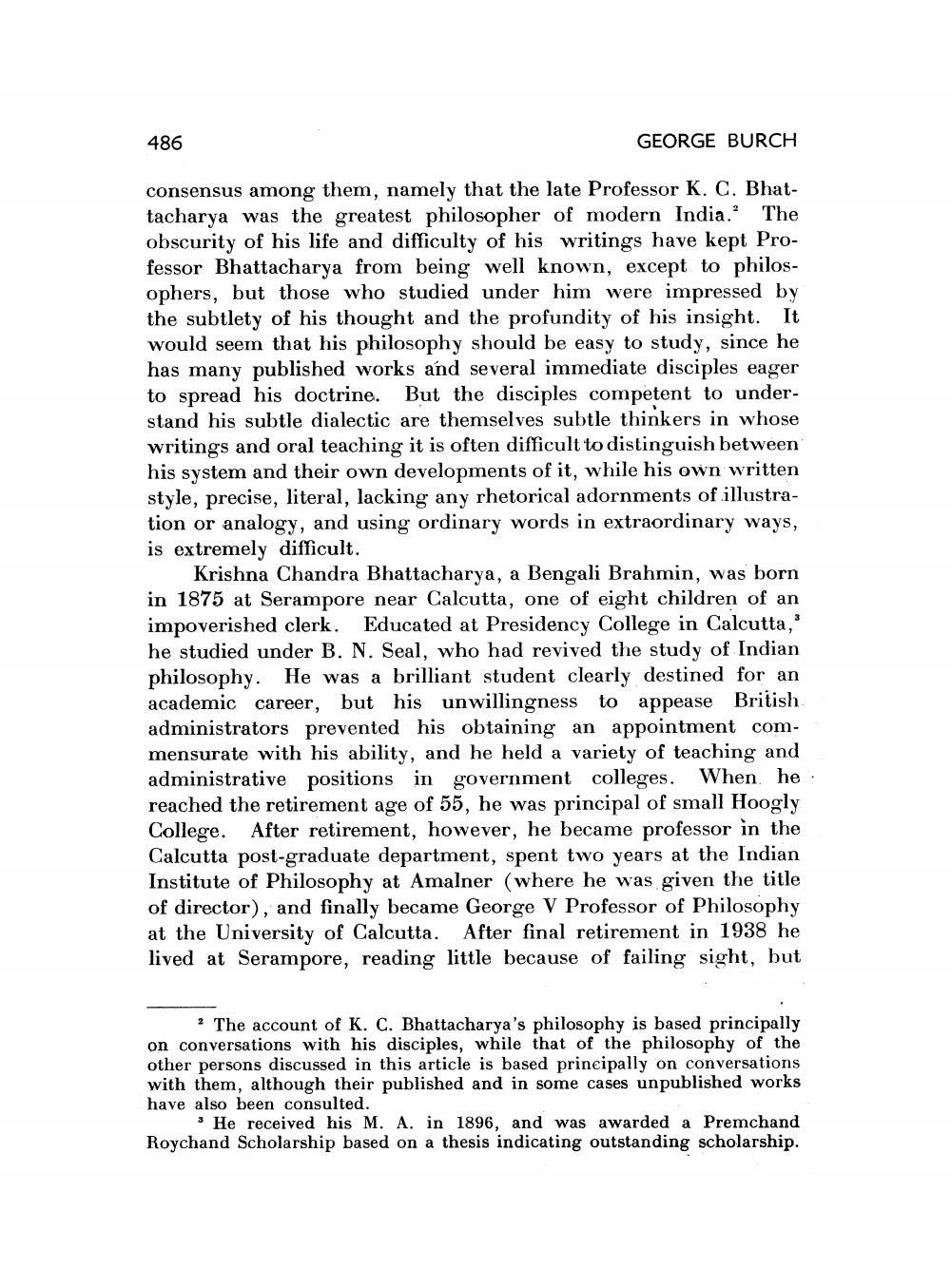Book Title: Contemporary Vedanta Philosophy 01 Author(s): George Burch Publisher: George Burch View full book textPage 2
________________ 486 GEORGE BURCH consensus among them, namely that the late Professor K, C. Bhattacharya was the greatest philosopher of modern India. The obscurity of his life and difficulty of his writings have kept Professor Bhattacharya from being well known, except to philosophers, but those who studied under him were impressed by the subtlety of his thought and the profundity of his insight. It would seem that his philosophy should be easy to study, since he has many published works and several immediate disciples eager to spread his doctrine. But the disciples competent to understand his subtle dialectic are themselves subtle thinkers in whose writings and oral teaching it is often difficult to distinguish between his system and their own developments of it, while his own written style, precise, literal, lacking any rhetorical adornments of illustration or analogy, and using ordinary words in extraordinary ways, is extremely difficult. Krishna Chandra Bhattacharya, a Bengali Brahmin, was born in 1875 at Serampore near Calcutta, one of eight children of an impoverished clerk. Educated at Presidency College in Calcutta, he studied under B. N. Seal, who had revived the study of Indian philosophy. He was a brilliant student clearly destined for an academic career, but his unwillingness to appease British administrators prevented his obtaining an appointment commensurate with his ability, and he held a variety of teaching and administrative positions in government colleges. When he reached the retirement age of 55, he was principal of small Hoogly College. After retirement, however, he became professor in the Calcutta post-graduate department, spent two years at the Indian Institute of Philosophy at Amalner (where he was given the title of director), and finally became George V Professor of Philosophy at the University of Calcutta. After final retirement in 1938 he lived at Serampore, reading little because of failing sight, but ? The account of K. C. Bhattacharya's philosophy is based principally on conversations with his disciples, while that of the philosophy of the other persons discussed in this article is based principally on conversations with them, although their published and in some cases unpublished works have also been consulted. He received his M. A. in 1896, and was awarded a Premchand Roychand Scholarship based on a thesis indicating outstanding scholarship.Page Navigation
1 2 3 4 5 6 7 8 9 10 11 12 13 14 15 16 17 18 19 20
